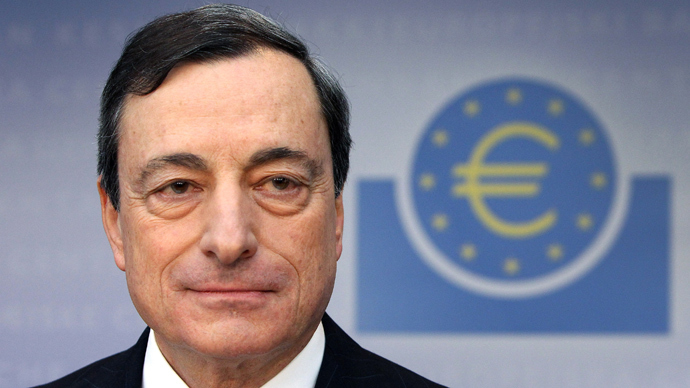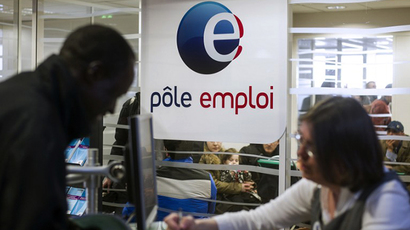No Change: European Central Bank keeps rates at record low

The President of the European Central Bank (ECB) Mario Draghi said the bank decided not to cut interest rates below its all-time low of 0.25 percent, saying it needs more economic data to take any action.
The ECB president said the bank is alert to the risks of deflation and is ready to act, but first they would need to look at high volatility in emerging markets and understand whether it’s a broad long-term crisis.
“The ECB still needs to look at the GDP figures for 4Q 2013,” Draghi said in a news conference following the meeting at the Frankfurt-based institution on Thursday.
The Governing Council in Frankfurt left the main refinancing rate on hold, counter to widely held expectations they would ease monetary policy at today’s meeting. Also untouched are the marginal lending rate (0.75 percent) and the deposit rate (0 percent).
“Even though we have signs of gradual recovery, prices are still weak,” ECB President Mario Draghi said in Frankfurt on Thursday. The bank president said the bank is alert to the below 1 percent inflation, but believes Europe is experiencing similar price drops following the Asian crisis of 1998 and the Lehman crisis of 2008.
“We are alert to these risks. We stand ready and are willing to act," said Draghi, saying low inflation poses a great risk for recovery and debt in the euro zone.
Deflation worries
Inflation is at a four-year low, even after the 24-member Governing Council cut rates to record lows in November. Surprisingly low inflation of 0.7 percent in January is still far below the bank’s goal of 2 percent.
“Is there deflation? The answer is no,” Draghi said, adding though “protracted inflation is a risk”. Draghi pointed out deflation exists in the euro zone’s austerity program countries – Spain, Ireland, Portugal, and Greece- where wages and prices are low.
“Primarily inflation is driven by food and energy prices. The second could be weak demand, for example, low unemployment,” Draghi said.
How low?
Draghi is convinced demand is getting stronger, not weaker. He also drew a comparison to the US, and said inflation rates in the EU aren’t much lower in the US, whose state of recovery is “much more advanced” than Europe’s.
Record low interest rates have been paired with extra cash liquidity measures in the banking system, as well as extra government bond purchases, but the Central Bank’s policy has failed to inspire growth in the real economy.
Monetary policy is applied across all bloc member states, which currently show many different stripes of economic strength. Germany, the euro zone’s strongest economy, only expanded 0.4 percent in 2013 and many euro economies are still contracting, even France.
Lower interest rates would turn off investors who are looking to make high returns on equity investments and assets.
While the US and Europe drove their interest rates to nearly nothing, emerging markets kept interest rates high, which has attracted a lot of capital.
After the financial crisis hit in 2008 and the closing of Lehman Brothers pushed the financial sector into panic mode, the US and European Central banks, lowered interest rates to record lows to keep the economy afloat.
As the US begins to wind down its bond-buying program, a lot of investors are shifting back to America in anticipation rates will go up.
Europe’s recovery could be derailed by its high exposure to emerging markets, which are at the moment turbulent as investors sell off assets and equity.














